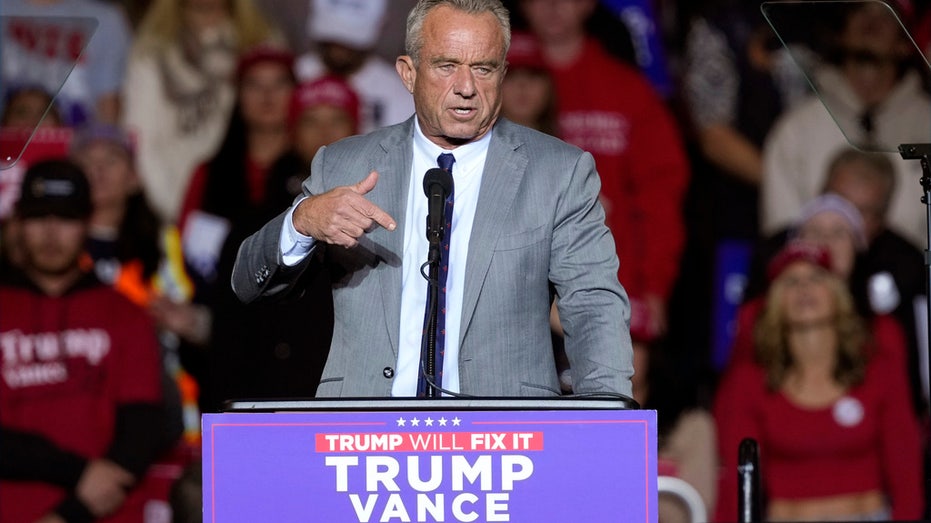Nobel laureates criticize RFK Jr. HHS nomination over 'lack of credentials,' vaccine stance
Seventy-seven Nobel Prize winners have come out against the nomination of environmental and health activist Robert F. Kennedy Jr. to lead the Department of Health and Human Services.
In a letter first reported by the New York Times, the Nobel Laureates urge members of the United States Senate to reject RFK Jr.'s nomination, raising concerns about his "lack of credentials" in health science or administration, opposition to vaccines and promotion of "conspiracy theories" about mainstream medical treatments.
"Placing Mr. Kennedy in charge of DHHS would put the public’s health in jeopardy and undermine America’s global leadership in the health sciences," the letter cautions.
Kennedy, the son of former U.S. Attorney General Robert F. Kennedy, is an environmental lawyer and activist who founded the Children's Health Defense, a nonprofit group accused of spreading misinformation on vaccines, including debunked claims that vaccination causes autism. President-elect Trump declared his intention to nominate Kennedy to lead HHS in November after Kennedy, who ran for president as an independent, endorsed Trump for president.
RFK JR. WANTS TO CLEAR OUT ‘ENTIRE DEPARTMENTS’ IN THE FDA: ‘THEY HAVE TO GO’
The letter cites Kennedy's opposition to widely-accepted public health interventions, including vaccination and the fluoridation of drinking water, to suggest his confirmation could lead to public harm. The Nobel Laureates also allude to his rejection of scientific evidence that shows H.I.V. causes AIDS.
Additionally, the Nobel Laureates call Kennedy a "belligerent critic" of the agencies he would oversee as Health Secretary, including the Food and Drug Administration, the Centers for Disease Control and Prevention, and the National Institutes of Health.
Kennedy has accused the FDA of "corruption" and called for "entire departments" at the agency to be cleared out. He has also called the CDC's vaccine division a "fascist enterprise" and accused health agencies of being captured by the pharmaceutical industry, according to NBC News.
The Nobel Laureates insist the next health secretary "should continue to nurture and improve — not to threaten — these important and highly respected institutions and their employees."
TRUMP TAPS RFK JR. TO LEAD DEPARTMENT OF HEALTH AND HUMAN SERVICES
The Trump transition team did not immediately respond to a request for comment.
If confirmed, Kennedy would oversee a vast health policy bureaucracy that includes 13 agencies, operates with a $2 trillion budget and administers Medicare, Medicaid, the Affordable Care Act and other crucial federal health programs.
RFK JR. CALLS FOR REMOVAL OF FLUORIDE FROM DRINKING WATER, SPARKING DEBATE
The Department of Health and Human Services guides public health policy for disease treatment and prevention; provides grants for medical research and community health programs; assists with child welfare programs, including adoption, foster care, child care and child abuse; develops bioterrorism defense strategies; resettles refugees who seek asylum in the United States and much more.
"President Trump has asked me to do three things: 1. Clean up the corruption in our government health agencies. 2. Return those agencies to their rich tradition of gold-standard, evidence-based science. 3. Make America Healthy Again by ending the chronic disease epidemic," Kennedy posted on X after his nomination.
Kennedy is not the only recent HHS nominee to face public scrutiny over his apparent lack of health credentials. Conservative groups opposed President Biden's 2020 nomination of then-California Attorney General Xavier Becerra to lead the department on grounds that Becerra, a former congressman and lawyer, had no related health experience.
The Senate confirmed Becerra 50-49, with the support of all Democrats and just one Republican, Sen. Susan Collins, R-Maine.
